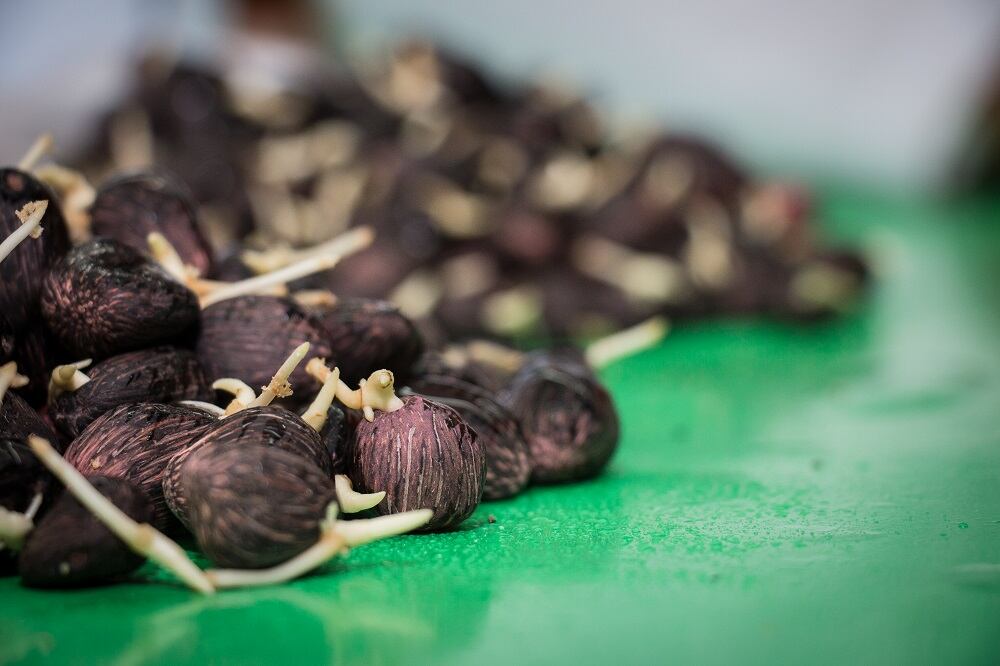In 2008, the Roundtable on Sustainable Palm Oil (RSPO) held its first conference in Latin America, marking the not-for-profit organization's first venture into the significant palm oil growing region.
Latin America is the fourth-largest palm oil growing region in the world, producing 5-6% behind Indonesia, Malaysia and Thailand. Currently, 782,000 tons or 21% of total production is RSPO-certified and the goal is to have 1m tons certified by the end of 2018 and 50% by 2020.
Yasmina Neustadtl, outreach and engagement manager for RSPO Latin America, said RSPO membership had risen significantly over the last few years to 103 members and should surpass 120 by the end of this year.
“There's a rapid growth in membership - we think it's growing at about 25% (…) So, compared to Europe it's not that big but it's definitely the fastest-growing region outside of Asia, in terms of certification,” Neustadtl told FoodNavigator-LATAM.
Currently, more than 90% of this membership was made up of producers, she said, and the goal now was to get more brands on board.
The big brand push – buying and claiming
Whilst Neustadtl said it was vital to have certified producers for a strong supply, it was also necessary to get local brands involved to create market impact.
“In the past it's been grower-orientated and now we're hoping to be a bit more market-orientated, obviously without disregarding the growers,” she said.
“...At the moment, what we're doing as a team is identifying and mapping out who the big palm oil buyers are in the region. There are some countries where we have an important amount of certification, for example Colombia, which is the largest producer of palm oil in the region. So, we're looking for local buyers who are buying from Colombia and meeting with them.”
Many major international companies, the likes of Nestlé, Unilever and Ferrero, she said, worked in Latin America but these firms had their RSPO membership registered elsewhere, so the task was getting regional and local sign ups.
Neustadtl said one interesting aspect was that some local companies were already buying and using certified palm oil, just not declaring it or associating the brand with RSPO.
“They buy certified palm oil but it's off our radar. Ideally, you have to claim it. But some companies, for example say 'I'm not interested in making a claim but I'm interested in having a policy for sustainable palm oil in place and so I will purchase certified palm oil'.”

For RSPO Latin America, she said these purchases obviously helped because it pushed the market to produce more certified, sustainable palm oil but from a market perspective, it would be more rewarding if there were associated claims.
“Latin America is struggling with that final claim. I think it's directly related to the fact it's very new here and also the consumer is not demanding it. ...It's hard for companies here to justify why they would buy certified, sustainable if their consumers aren't demanding that. When you have a group of 500 people protesting in front of your store that you're killing orangutans, that's a big message. Whereas if you're here, that's not necessarily happening.”
RSPO Latin America was currently working with non-profit organizations to try and spark more consumer interest and demand which, in turn, should encourage wider brand commitments.
“The idea is for us to talk to them and explain the importance of making a claim. ...We have a few companies who are interested in labelling – oils in supermarkets – so, we're working with them so they can be the first,” she said.
One significant Colombian oil brand was getting primed to sign up to RSPO and start labeling its product, she said, and one group of smallholders in Ecuador producing organic palm oil were already claiming.
The hope was that others would follow, she said. “We're really, really very convinced that palm oil expansion will occur in Latin America and so we are working really hard to make it sustainable palm oil.”
